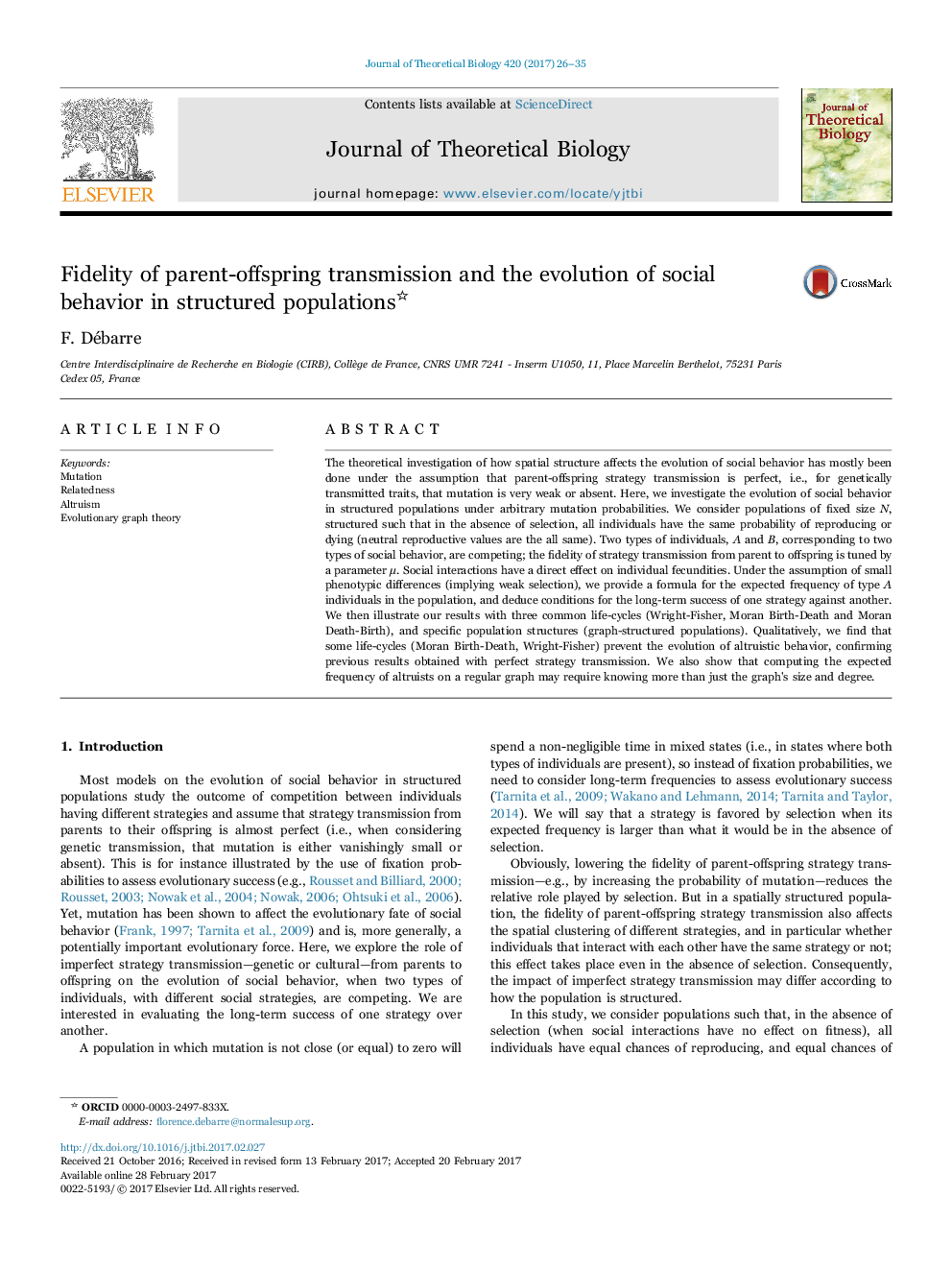ترجمه فارسی عنوان مقاله
وفاداری انتقال والد-فرزند و تکامل رفتار اجتماعی در جمعیت های ساخت یافته
عنوان انگلیسی
Fidelity of parent-offspring transmission and the evolution of social behavior in structured populations
| کد مقاله | سال انتشار | تعداد صفحات مقاله انگلیسی |
|---|---|---|
| 122664 | 2017 | 10 صفحه PDF |
منبع

Publisher : Elsevier - Science Direct (الزویر - ساینس دایرکت)
Journal : Journal of Theoretical Biology, Volume 420, 7 May 2017, Pages 26-35
ترجمه کلمات کلیدی
جهش، وابستگی، بی نظیری تئوری گراف تکاملی،
کلمات کلیدی انگلیسی
Mutation; Relatedness; Altruism; Evolutionary graph theory;

